
Introduction
The PlayStation 4 is the most powerful games console on the planet. With more graphical power than the Xbox One, 32 times more system memory than the PS3 and a firm focus on pure gaming experiences rather than media mojo, it has established itself as the next-gen console to beat.
It’s a games console built by gamers for gamers. It won the hearts and minds of many from the word go, with lots of prospective next-genners left feeling alienated by some of Microsoft’s bizarre policies and choices for the Xbox One – many of which were reversed as a result of a backlash.
Coming in at $549.95, the PS4 is also $50 cheaper than the Xbox One, making it appear terrific value. It doesn’t come with the PlayStation Camera (the One does come with Kinect) but this can be bought separately for $89.95 if you so wish.
The differences between the PS4 and Xbox One are actually evident before you even switch them on. Despite the two consoles both sporting similar half-matte half-gloss finishes and containing very similar internal components, they really couldn’t be more different.
For a start, the PS4 is small and sleek in comparison to the enormous VCR-like square cuboid of the Xbox One. And this means that the PS4’s box is half the size and weight of the Xbox One. The Sony console can be extracted from its packaging and plugged in and booted up in a couple of minutes.

Xbox One on the other hand comes in a huge, hulking box. It’s fiddly to open and unpack, and it’s full of little compartments, cardboard and plastic to get in the way and make a mess with. The environment was not a concern for Microsoft when it designed the Xbox packaging, clearly.
This is the kind of streamlining that typifies the PlayStation experience with PS4. It’s a console designed for gamers to play games and in this respect it could be described as more of spiritual successor to the PlayStation 2 – still the best selling games console the universe has ever known.
Design
One look at the PS4 and you know you’re seeing Sony hardware. It’s slim, sleek and jet black, roughly the size of a second generation PS3 Slim. The full measurements are 275 x 53 x 305 mm. It’s a lot more compact than an Xbox One, which is longer, taller and squarer.

In a feat of engineering worth tipping your hat to, and in spite of the PS4’s slim stature, Sony has tucked the power supply inside the system, leaving no external power brick to trip over. The Xbox One on the other hand retains the power brick of the Xbox 360.
PS4 sports a sloped, asymmetrical design. That’s its largest departure from PlayStations past. It lies flat on its belly by default, but can go up on its tiptoes with the help of a plastic stand, sold separately for $27.95.
On its face is a slit of a mouth, a slot loading Blu-ray disc drive. To its right are two powered USB 3.0 ports, which can charge your DualShock 4 controllers when the system is turned off, a feature the PS3 sorely lacked.
Along the top, or the side if you’ve opted for the stand, is a light, which glows blue when you boot it up. It breathes some life into the otherwise cold industrial design of the system. Turn it on and it blinks a yawning hello.

PS4 specifications
Inside, the PS4 is all business. It has a custom single-chip processor that combines an eight core x86-64 AMD “Jaguar” CPU with a 1.84 teraflop GPU based on AMD’s Radeon tech. That’s backed by 8GB of GDDR5 RAM, and a 500GB mechanical hard drive.
Sony claims that the PS4’s overall performance is ten times that of the PS3. You can also remove that 500GB drive and replace it with a larger drive, or an SSD for better performance. Sony says these do it yourself upgrades will not void the system’s warranty.
Those two USB ports are the PS4’s only front facing connections. In the rear you’ll find HDMI, Ethernet, a digital optical audio out and a proprietary auxiliary connection for the PlayStation Camera.
For wireless connections, the PS4 uses 802.11 b/g/n for WiFi and Bluetooth 2.1 for its wireless DualShock 4 controllers.
Features
The PlayStation 4 is a living room computer, more so than the PS3 ever was. Not just because of its specs and AMD-based architecture, but because of its robust feature set.
It’s capable of bringing games and movies quickly into your home, as well as connecting you to your friends and other online gamers through the PlayStation Network as well as Twitter and Facebook to share brag-worthy gaming moments.

What’s in the box?
You’re bringing home more than a just a stylish asymmetrical black console. In addition to the actual system you get a power cord (not a big power brick), an HDMI cable, an earbud microphone combo, one DualShock 4 controller and its charging cable (we charged our DualShock 4 pad using the Xbox One and the world did not end).
Extra controllers don’t come with another charging cable, so don’t lose that one. Also, note that we said earbud singular, not earbuds, as in just for one ear. It’s cheap but serviceable, but you can actually plug any old headset or pair of buds you already own into the controller’s headphone jack, so it’s not much of an issue.

Setup
Setting up the PlayStation 4 is very easy, especially if you have a PS3. You can actually use the same cables from Sony’s last system, making for a very easy swap.
As mentioned in the introduction the PS4 is super easy to extract from its box and set up, leaving minimal mess and very little environment-killing packaging.
Once it’s all plugged in and booted up, your new PS4 will ask to connect to internet. It wants that 300MB day-one patch, but it doesn’t need it for offline play. You are able to skip WiFi or ethernet altogether and just pop in a game. Unlike the Xbox One, you can get to the homescreen without initially connecting to the web and patching.
Once you do connect to the internet, you’ll need to let the PS4 update before you can make purchases from the store or play online.

PlayStation Store
Sony won the popularity contest at E3 by promising not to fiddle with used game trade-ins, but gamers will still have the option to purchase any and all games on the day of release digitally through the PlayStation Store.
While opting out of a physical copy means no disc to resell down the road, a digital copy brings a level of convenience to your purchase that’s reminiscent of Steam. It means no disc to lose, scratch or even bother inserting when you want to play. You won’t have anything to sell to GameStop though, nor will you be able to lend out the game.
Games can even be played before a download completes. When purchasing a game like Killzone: Shadow Fall, you’ll be asked which portion of the game should be prioritised, single player or multiplayer, essentially letting you choose which part of the game you want to hop into first.
In a little less than an hour, you’ll be able to start playing a title. It may seem like something only the truly impatient would enjoy, but when you consider that many releases weigh in excess of 35GB, it’s real luxury feature, and another impressive bit of engineering.

Then there’s the PlayStation app for iOS and Android. With just the stroke of a touchscreen, you can remotely purchase games, and get the download going on your PS4 so it’s ready and waiting when you get home (the console will turn on, download and switch off on its own).
Finally, PlayStation Plus is offering a bit of financial amnesty for customers who’ve bought copies of games like Assassin’s Creed IV: Black Flag or Call of Duty: Ghosts for PS3, and other titles that are available on next and current-gen. For a small fee, you can get the next-gen version, providing you insert your PS3 copy as a sort of proof of purchase.
You’ll have to continue to do so, meaning that every time you want to play the PS4 Call of Duty you bought through this offer, you’ll need to pop in the PS3 version. That last-gen copy will still work on your PS3 though, requiring the disc seems like a way to make sure customers can’t use both simultaneously.

PS Vita Remote Play
When Remote Play for the PS Vita was announced, everyone chirped that the PS4 would be the best thing ever to happen to Sony’s struggling handheld. While it may not sell many Vitas, considering customers have already spent a lot on a PS4, it’ll certainly get current owners to dust off the system.
Basically, a WiFi connected PS4 can stream gameplay to a Vita, much like a gaming PC streaming Borderlands 2 to an Nvidia Shield, or the proposed Windows to Linux streaming of Valve’s Steam Box.
We used the PS4 and Vita over our home WiFi, provided by a three-year-old Apple AirPort. The connection to the PS4 was lag free, to the point where you could actually use the handheld as a controller.
And you can use it as a control pad, as well as a second screen, Smartglass style. It’s a great way to avoid using the on screen keyboard, if nothing else.
Outside of the same WiFi network as your PS4, Remote Play is not an option. At the office we couldn’t get it to connect to our PS4 at home, and it simply isn’t an available over a 3G data connection. In regards to this, Sony’s official statement is:
“We strongly recommend that Remote Play be used within the same WiFi network where the PS4 system is connected. Remote Play may or may not work over a wide area network. For Remote Play to function over a wide area network, a robust and stable WiFi connection and broadband Internet connection is required, and the local area network where the PS4 system is connected must be configured to permit the PS Vita system to access the PS4 system.”
Sony’s statement holds true, so Vita Remote Play is really more like a Wii U Gamepad, letting you play in bed or get a game in while someone else is using the TV. It’s not a strong reason to go out and buy a Vita, but if you already own, it’s an impressive novelty at the very least.

Sharing Gameplay Videos
When Sony pulled the PS4 out of the shadows and started rattling off features, it mentioned one truly original and intriguing feature: saving and sharing gameplay videos with the press of the Share button on the DualShock 4.
At all times when playing a game, your last fifteen minutes of action is being recorded. This can be disabled, if you find it creepy or want to save on hard drive space, but it’s switched on by default. There are also places where recording or screen grabs are locked out by developers. It’s usually during cinematics or in certain menus.
Right on the console you can manipulate the video to a limited degree, more like trimming than true editing, and then share it to Facebook or on the PSN. You can also take a screenshot by holding the Share button, and then attach it to a PSN message, Facebook or tweet it.
Sharing videos and screens is limited to social networks and the PSN. There’s no way to get them to YouTube or Flickr, or create a private link to the video. That’s a real disappointment, especially since the Xbox One offers you a lot more freedom with your clips, like uploading them YouTube. In a perfect world we’d be able to plug in a thumb drive and grab the raw video, but that’s not allowed.
However, you can stream live gameplay for others to watch over Twitch and Ustream, something PC gamers have enjoyed for a while now. It’s quite painless to set up, especially compared to the third-party mechanics needed to employ this on a last-gen system.
Gamepad + PS Camera
The PlayStation 4 is one hot combination of industrial design and gaming hardware, but what about those accessories? How are they for interacting with the system?
Out of the box you’ve got one DualShock 4 controller and its charging cable. Sold separately, a spare will cost you $99.95 with no extra charging cable included.
Then there’s the PlayStation Camera. It’s available online for $89.95, and while it lacks the robust feature set of its new Kinect rival, the fact that it’s sold separately is likely why the PS4 was able to undercut the Xbox One by $50. So thank it for that, at the very least.

DualShock 4 controller
The PlayStation and its DualShock 4 pad have been peas in the proverbial pod since the brand’s inception. Ever since the introduction of the twin analog stick design in 1997, Sony has changed little about its signature gamepad.
The DualShock 4, the current controller model that ships with the PlayStation 4, is the most refined iteration yet, but Sony has not thrown the baby out with the bathwater. In fact, DualShock fans will find it immediately familiar, and those that disliked Sony’s design will find that some, but not all, of their gripes have been addressed.
The DualShock 4 might look an awful lot like a DualShock 3, but it’s far from the same old controller from the past seven years. It’s built on a series of tweaks, rather than an overhaul, of the last Sony controller. Even though the new DualShock is even PS3 compatible, a lot has changed from one generation to the next, and mostly for better.
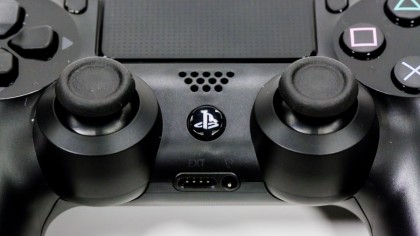
Most alterations made to the DualShock seem based on user feedback, targeting a specific annoyance gamers had with last gen’s model. For example, the twin analog sticks are now spaced a little bit further apart, so it’s no longer possible to smack your thumbs together when pulling both sticks towards each other.
The tops of the sticks are now dimpled. They also have an extra grippy rubber texture, making them very easy to manipulate. Shooter fans especially should appreciate these tweaks.
Over long gaming sessions we still found its symmetrical stick layout to be more fatiguing than Xbox’s asymmetrical design. The DualShock 4 is the best DualShock yet, but die hard fans of Microsoft’s gamepad, or long time DualShock haters, won’t be won over. We would certainly say that the new Xbox One pad is a lot nicer to use, but this is all about personal preference.
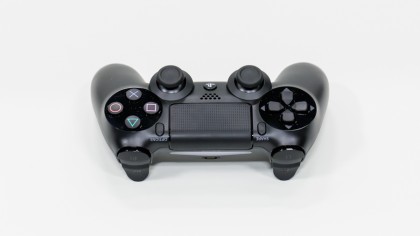
The L2 and R2 shoulder buttons, which commonly function as triggers, have been extended. They’re a lot easier to catch and grip, and it’s more comfortable to rest a finger on one, ready for that quick reaction shot.
Sony has also stepped away from the classic DualShock design by shifting from Start and Select buttons to Share and Options. Not only are they labeled in a way that better fits their functions, they’re no longer rubber. They’re very flush, making them hard to hit by accident, and they feel closer to a mouse click then the spongy button we were used to.
Speaking of a mouse, the DualShock 4 also sports a touchpad. It’s metal construction feels great to the touch. Fingers glide smoothly and it can be clicked, just like on a laptop. In fact, it feels a lot like what you’d find on a MacBook; the overall construction is excellent.

While it’s underused by the current crop of games, the touchpad is a smart addition. It’s fabulously intuitive, and will certainly be a boon for both menu navigation and casual gaming.
Borrowing a feature from the Wii Remote, the DualShock 4 has a little speaker. It leaves us wondering if Sony will best Nintendo here by figuring out something useful to do with it. Right now the best we’ve encountered is the way Resogun pipes important bits of narration through it, leaving us free to mute the game and blast our own music.
There’s a 3.5mm headphone jack too, so you can plug any old headphones or headset right into the controller. It’s extremely convenient, and a great money saver since you can use earbuds or whatever else you already own. The sound outputs in stereo, so it’s a bit of a waste to use a fancy 5.1 cans this way, but the sound options in settings let you choose between piping chat or game audio into your ears.
Multiplayer
Sony has also streamlined the whole “who’s player one?” question. Each controller has a light bar that glows one of four colours: blue, red, green or purple. Players are now identified by colour, rather than a number.
It’s now much easier to know who’s who at a glance, but these glowing controllers can get obnoxious when you’re trying watch a movie in a darkened room. There’s really no reason why they should be lit up when you’re using Netflix, or when there’s only one controller turned on, for that matter. The only solution is to turn the controller off, which means having to wake it when you want to pause your movie.
The DualShock 4 also has less battery life than the previous model. A day of moderate gaming, or leaving the controller on when you watch a film, puts a serious drain on its charge. Our controller frequently ran dry before the end of the day, to the point where we seriously suggest owning at least two, especially if your TV is too far from the couch to play while plugged in.

Basically, you need to remember to keep a controller plugged into the PS4 whenever it’s not in use. Thankfully the system can charge a DualShock when it’s off or on standby, something the PS3 shockingly could not do, so at least Sony has addressed that major last-gen oversight.
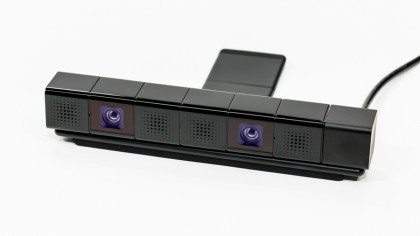
PlayStation Camera
Nothing says next-gen like voice and face recognition technology, hence the PlayStation Camera. While it’s a shadow of its rival the new Xbox One Kinect, it’s a massive step up from the PlayStation Eye Camera, thanks to controller tracking and a built-in microphone.
It’s still a rather unnecessary accessory, at least at this point in the system’s life. There are hardly any games that use it and the interface doesn’t depend on it in any meaningful ways.
At login, the PS4 can use the camera to recognize your face. It actually needs you to hold up a DualShock, where it uses the light bar’s color to figure out who’s player one and so forth. It’s amusing and futuristic, but doesn’t really speed up the sign in process, which is already as simple as clicking on your name.

The PlayStation Camera has a microphone, which can pick up simple spoken commands. The PS4’s voice controls are limited, especially compared to the Xbox One. It can be used to launch games, put the system in standby or capture a screenshot. However, voice functions can also work through a microphone, either by plugging the ear bud that comes with the system into your controller or through a fancy third-party headset.
As far as games go, only one title truly requires it: Just Dance 2014. For gamers, this should be the deciding factor: do you want to spend an extra $90 to play just one game? Personally, we’d recommend waiting until there’s another title or two.
There’s also the Playroom, a sort of tech demo that comes with the PS4. It’s a showroom feature, the kind of thing that gets otherwise uninterested people engaging with the console.

The closest thing it has to a game is air hockey, but the most engaging feature is AR Robots. Here, AR stands for augmented reality.
The camera puts you and your living room on the screen, surrounding you with little squealing robots. You can interact with them in limited ways, knocking them around or vacuuming them up with the controller.
Since there’s no goal and limited gameplay it’s a really just a tech demo. It’s amusing and terribly cute, until you run out of friends to show it to. After that, you’ll quickly stop visiting the Playroom.
Basically, the PlayStation Camera works well and has some amusing features, but it’s entirely inessential. While these camera probably won’t fly off the shelves, we’re happy that Sony chose not make it essential.
Performance
The PlayStation 3, with its with its 256MB of XDR Main RAM and 256MB of GDDR3 VRAM made it seven years, and managed to support visual feasts like The Last of Us and God of War: Ascension during its final days.
So it’s pleasing to see a whole 8GB of super-fast GDDR5 memory sitting at the heart of the PS4. That’s future-proofing right there.

Interface
The PlayStation 4’s interface has been streamlined considerably. Now known as the Dynamic Menu, it’s composed of two horizontal feeds. The primary menu serves up games and apps, the one above it hosts your trophies, friends list, your PSN profile and system settings.
Coming out of a cold boot, you’re on the homescreen in less than thirty seconds. The same goes for coming out of standby. There’s still some icon pop in, meaning the menu needs a few extra second to populate. None of that is terribly impressive, performance will undoubtedly be better for those who upgrade to an SSD.

As far as responding to player inputs goes, it’s very fast. You can drill through menus almost immediately, and everything moves in the blink of an eye.
This homescreen is never far away, just pressing the PlayStation button summons it and pauses your current game. Also, if you get lost in an avalanche of menus, the PS button will bring back to the primary feed, a simple alternative to spamming the back button.
Switching from one game to another will end your current session; the PlayStation warns you of this and asks you to confirm the shutdown of whatever title you have paused in the background. Better make sure you’ve reached a checkpoint, as the title will boot fresh the next time you play it; it does not pick up right where you left off.

We said the interface is streamlined and it is, practically to a fault. That primary feed constantly reorders itself, putting the recently accessed applications first. That’s fine if you’re only playing a game or two, but getting at something on your back burner means scrolling to the end of an ever growing list. Icons towards the back also need a second or two to appear.
The Dynamic Menu also lumps all your streaming apps into one icon. Everything from Netflix to Amazon to whatever else is found under TV & Video. Only Sony’s Music Unlimited and Video Unlimited are allowed to hang out on the homescreen.
The only icon that never moves is What’s New, basically the PSN’s news feed. It’s always at the front of the line and clicking into is to enter a jumbled nightmare that would make Mark Zuckerberg cry or laugh, we can’t decide which.

It’s an asymmetrical mishmash of icons representing everything your PSN friends have done, from play games to earn achievements to share gameplay videos and screenshots. It’s a total mess, especially compared to the neatly laid out Dynamic Menu.
The biggest problem with What’s New is not the eye gouging layout, but the fact that there’s not much to be done with 80% of the information there.
Suppose there’s an icon saying Joe played Battlefield 4 for three hours last night. Clicking on the icon just provides a description from the PSN Store and a link to buy the game. And you can “like” the activity, adding yet another icon to everyone’s jumbled feed.
What’s New is in desperate need of a filtration system. There needs to be a way to reduce the trophy spam and see just the things you can actually interact with. Being able to see gameplay videos posted by friends is cool, but not so cool that that you’ll dig through this feed to find them.
From a design perspective, the Dynamic Menu needs work. It alternates between too stripped down or absolutely cluttered. The saving grace is that it’s fast and pleasant looking, minus the pop in.

Games
Alright, the stuff that truly matters. The PlayStation 4 is indeed a graphical step up from the PlayStation 3 and the Xbox 360. The games look very good, and everything loads quite quickly. Beyond the speedy, one time install when you first pop in a new game, it’s hard to even notice the loading times. There’s nothing that even comes close to the disconcertingly long load up of the PS3’s The Last of Us.
The graphics are good, but not mind blowing. If you’ve played on a PC that costs two or three times what a PS4 goes for, you’ve seen as good, if not slightly better.
It’s the fact that you’re getting it for so much cheaper, and on your HDTV, that’s worth something. Just don’t expect your head to explode and your eyes to melt like it’s the end of Raiders of the Lost Ark.

There’s an impressive level of detail on display in Knack’s character models. Killzone shows off some vistas with a draw distance that would have melted a last-gen system. The most muscle being flexed on the PS4 comes in subtle ways from the performance side. The fact that Battlefield 4 can manage 64 players with just a brief load before a match is the kind of stuff worth noting.
The third-party titles on the PlayStation 4 have one foot in next generation and the other in the last. Games Call of Duty: Ghosts and Madden 25 look better than their last-gen counterparts, and they certainly perform better, but they’re not on par with Sony’s private stable of titles.
The one exception to that is NBA 2K14, which is truly striking. The animations, the renderings of famous players, the detail of the crowd and the accuracy of its animations make it something to write home about. It stands among the first-party titles as one of the best looking games on the system.

We’re being harsh but only because we know that better games will come. If you rush out and buy a PS4 now, you’ll be wanting for titles to show you what this system can truly do. There’s a reason Sony made such a big deal out of confirming a new Uncharted game, the best is truly yet to come.
Media
The PlayStation 3 was beloved among AV enthusiasts and home theater techies as a simple, relatively inexpensive DLNA media server. Without breaking too much of a sweat you could have it streaming music and videos from your PC, playing them back over your stereo and HDTV.
If that’s what you liked best about your PS3, then hold onto it. The PlayStation 4 comes with no such features, nor can it play MP3s, MKV or MPEG video files. It won’t even play a CD if you pop it in the drive. All that could change, however, since Sony has responded to the cry of “what gives?” from its fan base.
Until that’s patched in, we have to evaluate the PS4 on the functionality present at launch. Right now the PS4 is closer to a PS One than a PS3, with extremely limited streaming services as well Sony’s own music and movie storefronts.

Streaming video apps
Like a good little console, the PS4 is playing host to a plethora of third-party apps for streaming movies and television. While it’s neck and neck with the Xbox One in terms of library size, Xbox Live keeps all these apps behind the Gold paywall.
Even if you’re paying for Quickflix, you won’t be watching it on your Xbox unless pony up for Gold. Not so on the PSN. You need a subscription for online multiplayer but not for media streaming.
Right now, the PS4 has very few apps for media streaming, not even ABC iView though we’re told these services are incoming.
There is Quickflix, Sony’s Vidzone music video service and IGN videos, but the collection of catch up services offered on the PS3 are yet to materialise on the PS4.

Music Unlimited
There are no third-party music streaming apps on the PlayStation 4. Same goes for Xbox One. Microsoft has its Xbox Music, and Sony has Music Unlimited, a proprietary app very similar in execution to Spotify.
It requires a subscription fee of $12 a month if you want playback from mobile devices. It lets you stream whole albums or create stations, or channels, as it refers to them, from a massive library of artists. There are enough genres here to cater to cover the majority of mainstream music, some obscure stuff as well, and a strong showing of comedy albums.
The best part of Music Unlimited is how it’s been gloriously well integrated into the console’s interface. Music can be streamed over gameplay, with playback controls just a long press of the PS button away. You can also access the Music Unlimited app without closing your current game.

Unfortunately, Music Unlimited needs work. The app is slow, you’ll see a loading screen each time you open it, even if it was just recently accessed. That’s far more loading than you’ll ever see in a game.
Channel song matching is poor. When you first create a channel you’ll always hear a track from the artist you’ve chosen. What comes up next is a crapshoot, often a track entirely outside the genre you’re expecting.
Music Unlimited doesn’t seem to learn from your skips either. Blow past an undesirable track and the next song is often in that same genre you’re not interested in, or even by the same artist. There’s no way to give a track a thumbs down either.
We also had music playback drop out frequently times during our testing. Hopefully this is all just a server issue, something that Sony can sort out sooner rather than later.
All in all it’s a real missed opportunity. The strong interface integration on the PS4 really got our hopes up, and since there’s no Spotify, Rdio or Pandora here, Music Unlimited really is the only game in town.
Also, since there are apps for Android and iOS, as well as an in-browser player, this could conceivably become your all around source for music, and therefore a worthy investment. As it stands now, it’s hard to recommend. We suggest saving the free trial that comes with your PS4 for a month or so and to see if things improve. We’ll be back again to check it out and update this review.

Video Unlimited
If Music Unlimited is Sony’s Spotify, then Video Unlimited is its iTunes for movies and TV. It works much the same way as those services, offering streaming playback of movies and TV in standard or high definition.
It’s a bit of a change from the PS3, which allowed you to download movies for local playback. If you have an unreliable connection for streaming, this probably isn’t the best option for you, but to be fair, Quickflix and others won’t fare much better. Those services are streaming only as well.

The selection is pretty close to its rivals as well. We did our best to stump it, but found a wide library of new and classic movies and television.
The roadblock here is that your playback devices are severely limited, namely to Sony devices. Only Xperia Android devices will be able stream your purchases, with no support for any other flavour of Android, iOS or even Mac computers. There is an app for playback on Windows PCs, and it did not appear to be limited to Sony Vaio machines.
Basically, while Video Unlimited has competitive selection and pricing, we can’t recommend buying anything more than a rental from it, something that you’ll watch in one sitting on your PS4 or PS Vita. Unless you own a few more Sony devices, you won’t have a lot places to enjoy your library.
Network
In the last generation, Sony’s PlayStation Network, or PSN, was always number two to Xbox Live.
PSN was by no means poor, but it was a get what you pay for situation. Xbox Live Gold was around $80 for a year, got you access to online multiplayer and streaming services (even ones you might already be paying for, like Quickflix) and had a robust list of features that made it easy to communicate with friends and join their games.
Sony gave away online multiplayer for free with the PlayStation 3, but you could opt for PlayStation Plus status for digital store discounts and other perks. Now the arrival of the PS4, Sony has given the PSN a major renovation, and introduced a paywall for online multiplayer.
The PSN on the PlayStation 4 has gotten a major renovation. It has new features and benefits, and compelling reasons to spend $70 for a year of PlayStation Plus: it’s now required for online multiplayer.

PlayStation Network
Unlike Xbox One, Sony’s console does not need to be connected to the internet for its initial setup. There is a sizeable day one patch, but if you live in a lead-lined bunker without a trace of WiFi, you’ll still be able to pop in a disc and enjoy some single player without downloading it.
During the initial setup, the PS4 will ask to be connected to internet, like any PC, phone or tablet would do. As we said, you can deny it, and still get some gaming and DVD watching done. However, you’d be missing out on a lot of the fun.
The PSN now supports a party chat function, which lets you group with friends outside of a game for open mic chat. If you do enter a game, you’ll be able to communicate privately with each other. The mic quality is clear, but we do suggest investing in something beyond the tinny earbud that comes with your system.
Your PSN profile can now be linked to your Facebook account. It’s relatively well executed, but take your time going through the setup menus or you’ll end up spamming your friend’s news feeds every time you play a game or earn a trophy.
There’s an option to make your real name public to everyone yahoo you encounter online. We opted to make it private, meaning that after your friend someone, there’s a can send a second request to make your real names visible to each other.
This is a smart, well executed feature. This second request can be sent at any time, allowing for a “getting to know you” period with the people you meet online. Of course, if you’re dealing with someone you know in real life, you can go ahead and send the request. Using real names makes it easier to keep track of who exactly HeadShot9999 is, and makes for a much nicer looking friends list.
While the PSN did have some hiccups during the first 24 hours of the system’s North American launch, it’s smooth sailing now. We’ve been able to maintain a steady connection with a fast ping on our home internet connection, in both first and third-party games.

PlayStation Plus
On the PlayStation 4, Sony has followed the Xbox Live Gold example and put online multiplayer behind a paywall. While it’s easy to find that disappointing, it was an inevitability, and Plus still comes with all its old benefits, and it’s priced a bit less than Xbox Live ($70 a year versus $80 for Live). Also, you can still access services like Quickflix without buying into Plus – with the Xbox you can’t even use Skype without subscribing to Gold.
If you have an active PS Plus account from your PS3 or PS Vita it’ll carry over and apply to all your Sony systems. Benefits like digital store discounts, monthly free games and early DLC access are still part of the package.
You now get multiplayer access and game patches that download and install automatically while in the PS4 is in standby. Firmware and overall system updates will download automatically even if you’re not a Plus member.
Plus also gets you 1GB of cloud storage for your saved games. While any PSN member can sign into a friend’s PS4 and access their digitally purchased games, only Plus subscribers will be able to yank their progress out of the cloud.
Right now, two of the best benefits of PlayStation Plus are Resogun and Contrast, the games you currently get to download at no extra for charge for subscribing to Plus. It’s a rotating selection, so eventually these won’t be the freebie games, but those who were subscribed to Plus during their reign will get to keep them as long as they have Plus.
Sony also has a pretty forgiving system for those who let their Plus lapse. Should it lapse, your free games won’t be removed from your hard drive, but they will lock up. Once you buy back in, they be accessible again. It would be pretty draconian of Sony to take away your games just because you’re not auto-renewing.
While it is sad to see free PSN multiplayer go the way of the dodo, Sony has done a lot to sweeten the Plus deal. We think it’s an essential part of the PS4 experience, and totally worth the price. At the very least, use the free trial that comes with your system and grab Resogun and Contrast before they disappear.
Hands on gallery






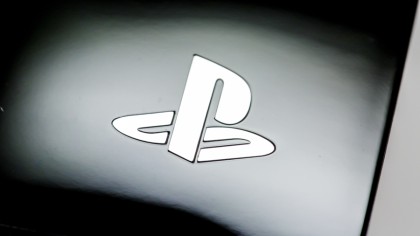

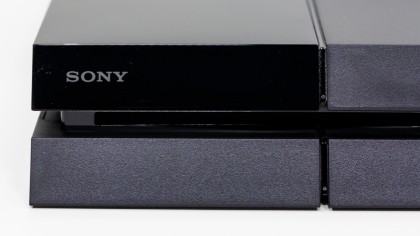


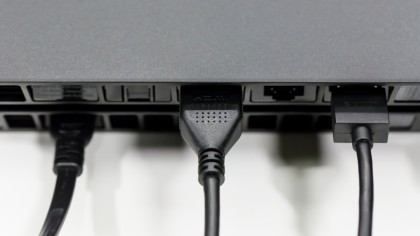


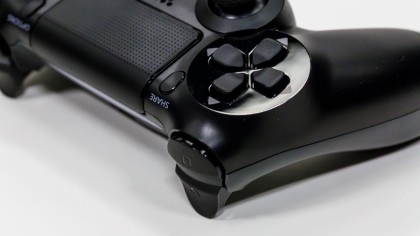







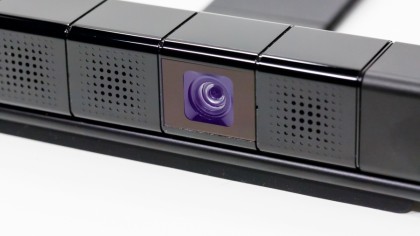
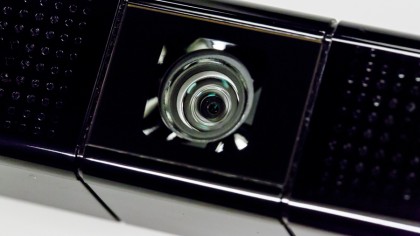

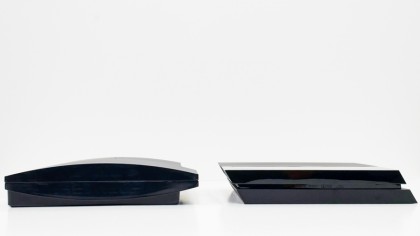
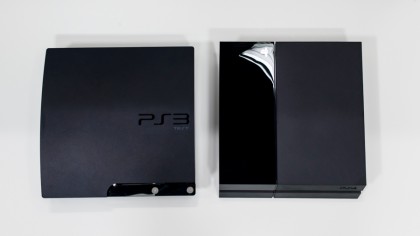

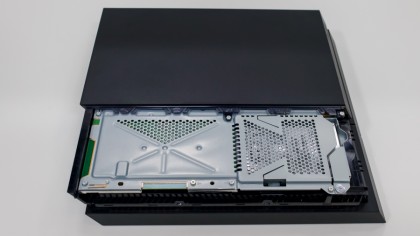

Verdict
With the PlayStation 4, Sony opened the door to the next generation of console gaming and put forth a serious challenge to Microsoft’s Xbox One.
It’s packed the system with future proof specs, improved the controller, lined up tons of great developer support and undercut the competition on price.
We won’t beat around the bush: it’s a great machine. But is it worth diving into now, or should you wait for a that new Uncharted? Lets break it down.
FutTv : k2J1D34XTbE72
We liked
Gaming on the PS4 is fantastic. The graphics are good, not mind blowing if you’ve used a expensive gaming PC lately, but a big step up from last-gen consoles.
It’s not the visuals but the performance that’s really impressive though. There’s hardly thirty seconds of loading time between the dozen launch titles we tested, and multiplayer sessions can get massive, like the 64 player showdowns on Battlefield 4.
Setting up is a doddle, and we loved the no-fuss packaging and the ease of use.
The interface is fast too. Everything is speedy and responsive right from minute one, and the interface is full of clever design choices that speed things up. Games begin to install the second you pop in the disc, firmware updates download while the system is on standby and game patches do too if you have PS Plus.
The DualShock 4 controller is a significant upgrade. The most bothersome aspects of the DualShock 3 have been addressed, resulting in a comfortable controller that’s more functional for games of all genres. The touchpad, while currently underused, is well built and nicely placed, the light bar makes player identification simple and the system can finally charge a controller while it’s off or in standby.
PS Vita Remote Play works well over WiFi. Using it on a different network or 3G is a no go, but being able to play Knack in bed or Killzone when someone else is using the TV was reliable and lag free over our home WiFi, plus a lot of fun.
The system looks great and has no power brick. On a purely aesthetic level, the PS4 is very cool. The asymmetrical design is striking, even if it makes it difficult to get at the rear ports, and it’s also a restrained size. It makes you wonder how the Xbox One could be so massive and still have a power brick.
PS Plus is totally worth it. While it’s a bit disheartening to see online multiplayer go behind a $70 paywall, Sony has tossed in a lot of stuff to sweeten the deal. You get improved standby functionality, discounts on games in the digital store and freebie downloadables that are actually quite good, right now anyway.
It’s cheaper than the Xbox One. You don’t get a PlayStation Camera in the box, and it should be noted that it’s not as powerful as the new Kinect, but if you don’t care about that, then it’s hard to argue with saving $50. That’s practically a game and half.
We disliked
The PS4 doesn’t have enough great games yet. Historically, launch lineups are often mixed, and filled with games most players won’t remember six months later. That’s exactly where the PS4 is at right now. Most games don’t feel like they’re tapping the true potential of the hardware.
The interface is too stripped down, and the What’s New feed is a mess. Having the PS4’s Dynamic Menu constantly reorder is too simplistic, especially if you’re going to tuck Quickflix into a Movies & TV folder. This is nitpicking really, it’s the What’s New news feed that needs work. All the useless trophy spam is burying genuinely engaging stuff like gameplay video and screenshot shares. Give us a way to filter it, Sony.
Sharing of gameplay videos and screenshots is shackled to social networks. There really ought to be a way to grab your gameplay videos with a USB drive, or a the very least upload them to a private link. Being forced to share them on Facebook or on the PSN just makes us not want to do it.
No DLNA sharing is a step backwards, the lack CD or MP3 playback is really strange. People who used their PS3 as a media server are really going to miss these features. At least Sony has said it’s listening, hopefully it’ll start patching this stuff in soon. We’d also like to know when we’ll see the same collection of video streaming services offered on the PS3.
Sony’s Unlimited services need work. Music Unlimited has a big library and a great interface, but as of this writing it’s basically broken. The song matching is poor and playback frequently drops out. And Sony, not providing an Android app for Video Unlimited on anything but your own Xperia devices is downright miserly. Amazon may do the same thing and reserve streaming for its own Android devices, the Kindle Fire HDX, but at least it has iOS support and allows simple in-browser streaming.
Verdict
We’ll say it again: the PlayStation 4 is a great piece of hardware. It’s fast, attractively built and has a streamlined philosophy that puts games front and centre and has helped it achieved a relatively attractive price point.
It’s also in its infancy. It’s worth owning, but not worth rushing to the stores for. It’s only going to get better, when the truly next-gen titles start to arrive, when more streaming media apps are available, when its own media services gain stability and Sony patches in that much needed media playback support. Maybe it’ll even clean up the What’s New feed.
We really enjoyed our time testing the system, but as far as the games go, we failed to find a truly standout title. We’re still waiting for the game that makes us say “yes, this is why you buy a PlayStation 4.”
First reviewed November 2013
![]()







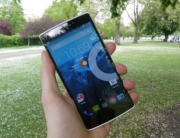



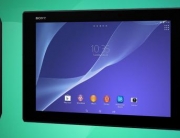
Leave A Comment